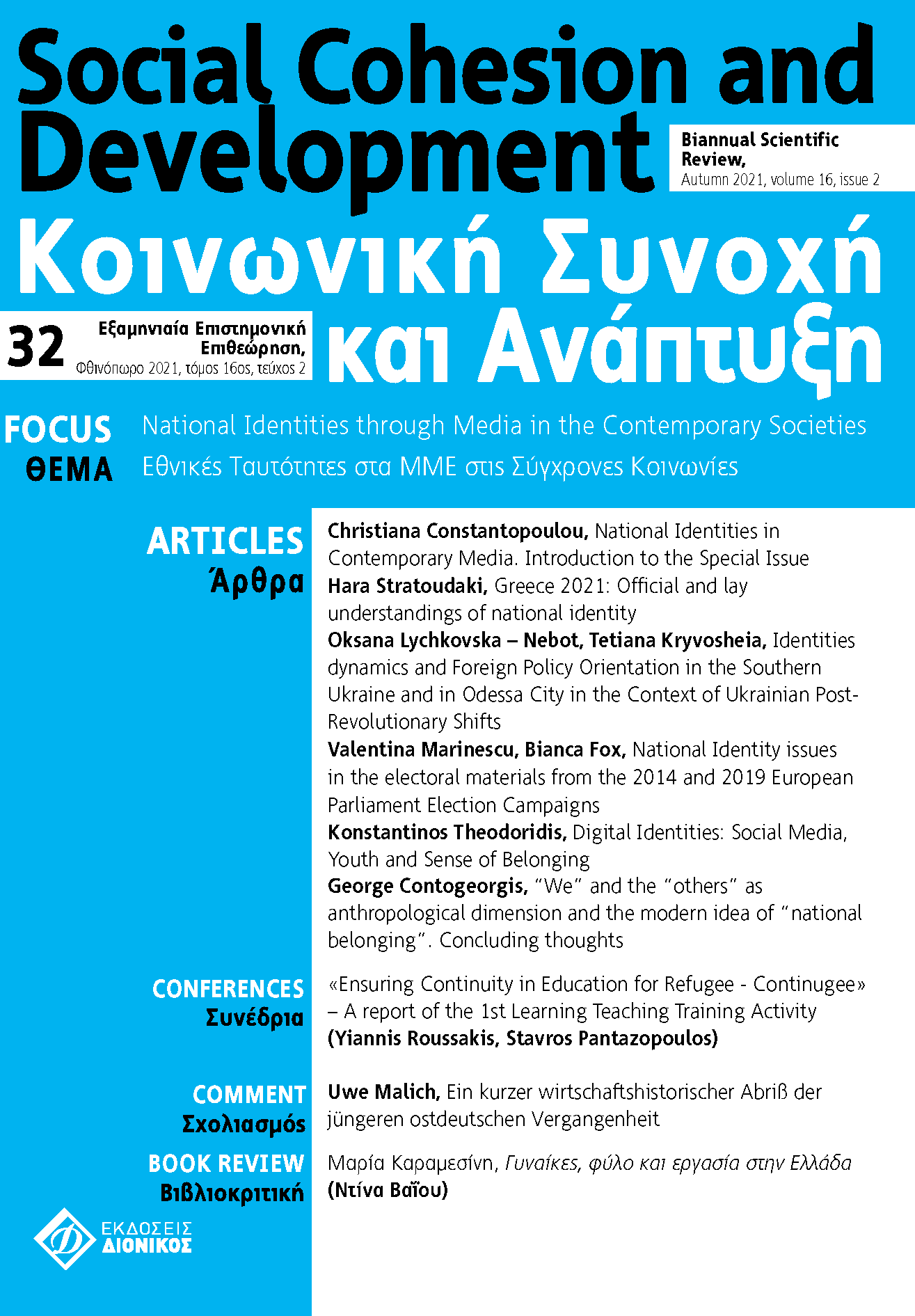National Identity issues in the electoral materials from the 2014 and 2019 European Parliament Election Campaigns

Abstract
The mediatization of politics could challenge
established political processes and has the
power to transform the relation between
political parties and candidates, on the one
hand, and voters, on the other. Mass media
effects on political processes have been for a
long time the focus of interest for academics.
This article analyses the content of electoral
materials used during two European Parliament
election campaigns (2014 and 2019)
focusing in particular on the coverage of values
related to national identity. Interestingly,
the quantitative analysis showed that the importance
placed on issues related to national
identity depended largely on the time when
a particular country became a member of the
European Union and differed considerably between
countries located in different parts of
Europe.
Article Details
- Zitationsvorschlag
-
Marinescu, V., & Fox, B. (2021). National Identity issues in the electoral materials from the 2014 and 2019 European Parliament Election Campaigns. Social Cohesion and Development, 16(2), 141–152. https://doi.org/10.12681/scad.32200
- Rubrik
- Articles

Dieses Werk steht unter der Lizenz Creative Commons Namensnennung - Nicht-kommerziell - Weitergabe unter gleichen Bedingungen 4.0 International.
Authors who publish with this journal agree to the following terms:
- Authors retain copyright and grant the journal right of first publication with the work simultaneously licensed under a Creative Commons Attribution Non-Commercial License that allows others to share the work with an acknowledgement of the work's authorship and initial publication in this journal.
- Authors are able to enter into separate, additional contractual arrangements for the non-exclusive distribution of the journal's published version of the work (e.g. post it to an institutional repository or publish it in a book), with an acknowledgement of its initial publication in this journal.
- Authors are permitted and encouraged to post their work online (preferably in institutional repositories or on their website) prior to and during the submission process, as it can lead to productive exchanges, as well as earlier and greater citation of published work (See The Effect of Open Access).


